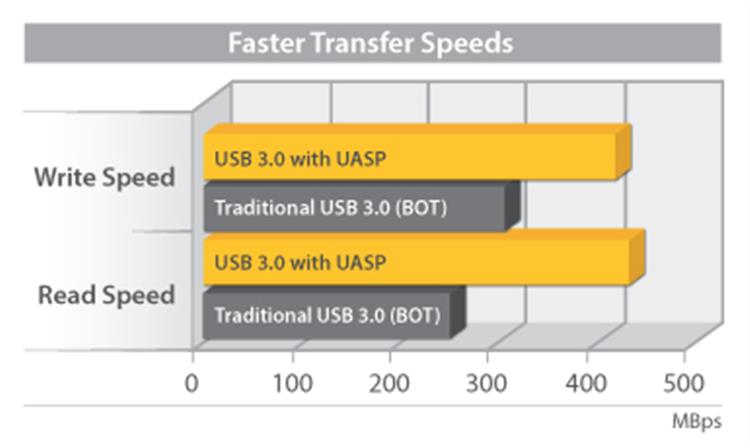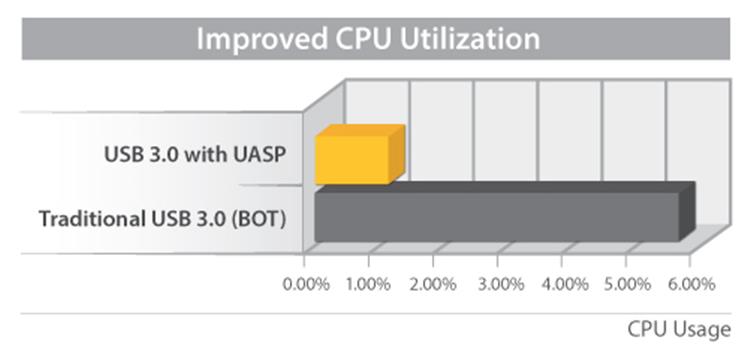The UNIDOCKU33 USB 3.0 Universal HDD / SSD Dock enables you to instantly access your 2.5 or 3.5in IDE and SATA hard drives through two top loading drive slots, saving you the hassle of mounting the drives into a computer or external enclosure or tray.
Enhanced with UASP (USB Attached SCSI Protocol), this hard drive docking station lets you get the most out of the fastest drive technologies such as SATA III (6 Gbps), solid state drives (SSD) and hybrid, drives with performance up to 70% faster than conventional USB 3.0 when paired with a UASP-enabled host controller. See our UASP testing results below for further details.
The slot-loading design holds the SATA and IDE drives upright inside the docks, neatly keeping them off the desk, for convenience and a clutter-free setup. For SATA drives, the HDD can be inserted and connected directly through the designated dock slot, while the IDE drive slot is conveniently positioned near the rear panel 40-pin data and LP4 power connections, making it easy to connect to the dock using the included IDE data and power cables.
A single USB 3.0 connection to your host computer, enables access to both the IDE & SATA hard drives simultaneously - a convenient solution for migrating data from an IDE drive to a SATA drive or vice versa. The dock can also be used to greatly increase the storage and backup capabilities of your computer system with support for high capacity drives (tested with up to 6TB 3.5" and 2TB 2.5" drives).
The UNIDOCKU33 is backed by a StarTech.com 2-year warranty and free lifetime technical support.
Improved Performance with UASP
UASP is supported in Windows 8, Mac OSX (10.8 or above), and Linux. In testing, UASP performs with a 70% faster read speed and 40% faster write speed over traditional USB 3.0 at peak performance.

At the same peak in testing UASP also shows an 80% reduction in required processor resources.

Testing results were obtained using an Intel® Ivy Bridge system, a UASP-enabled StarTech.com Enclosure, and a SATA III solid state drive.